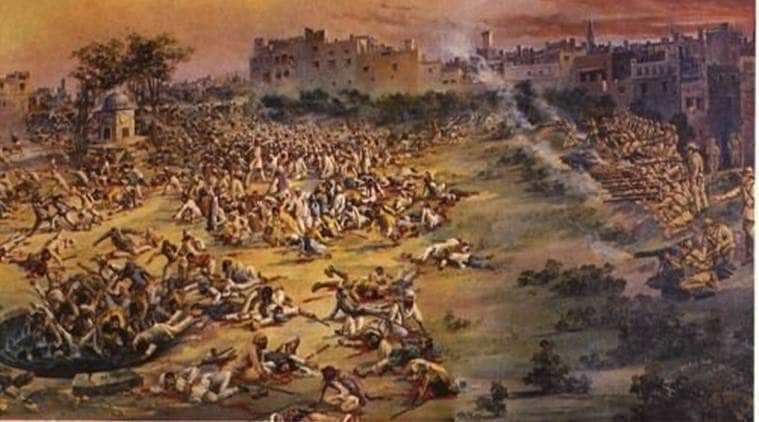IDR Blog
Jallianwala Bagh: The British must apologise for colonial excesses

India remembered with deep sorrow on April 13 the “Bloody Baisakhi” of 100 years ago in Jallianwala Bagh in Amritsar, one of the most shameful massacres of the nation’s colonial legacy. Its historical background is often forgotten. When World War I was to commence, Indian leaders generously agreed to fight beside the Allies. They were given to understand that early independence would be their reward. Instead, after a total victory in 1918, thanks in a large measure to a million brave soldiers of the British Indian army, India faced betrayal. Forgotten were the deaths of about 75,000 Indian soldiers and their trials and tribulations against the Germans, including facing chemical warfare, with no protective gear in the trenches.
India was rewarded by the infamous Rowlatt Act passed in March 1919. This law suspended civil liberties and allowed for trial of political prisoners without a jury. Protests against the Act had led to the arrest of pro-independence leaders and thousands had gathered at Jallianwala Bagh on Baisakhi (a spring festival) to peacefully express their dissent. On that day Colonel Reginald Dyer’s troops arrived at Jallianwala Bagh and, after sealing off the only narrow exit, fired 1,650 rounds at the unarmed protesters—men, women, and children—for 10 minutes continuously and without warning. The firing stopped only when the troops ran out of ammunition. Nearly 550 people are known to be dead though unconfirmed victims are said to be almost double that number.
Dyer’s actions were endorsed by Michael O’Dwyer, then governor of Punjab who, many say, was the brain behind the massacre. While Dyer died a natural death after paralysis in 1927, O’Dwyer was shot and killed in London by the Indian freedom fighter Udham Singh in 1940. Singh was among the survivors of the massacre. Given the death sentence by a kangaroo court, a defiant Udham was hanged on July 31, 1940, in Britain.
A hundred years later is India justified in demanding an unconditional apology? No less has been demanded from Japan in the infamous ‘Comfort Women’ case. There are two views – one by former colonizers who argue that the c turning the page and moving on is the only way to rebuild a post colonial relationship, based on equality, and others who passionately feel that for the dead to be decently interred, some retribution is essential.
The British have always fallen short of a full apology. Queen Elizabeth II said in 1997, on a state visit: “The tragedy of Jallianwala Bagh of 1919 is a shameful scar on British Indian history”. The recent debate in the House of Commons, which saw MPs – led by a group of British MPs of Indian origin – from across political parties join in the call for an apology, led to criticism of the failure of the government to apologise for the atrocity, with a foreign office minister referring to potential “financial implications” as one of the issues to be considered. This was an oblique reference to possible compensation to the descendants of the victims. It leads to wider questions about Britain’s approach to the massacre and the darker moments of its colonial history. Mark Field, the Minister for Asia and Pacific, acknowledged the “strong and compelling case” for Britain to go beyond the deep regret already expressed. Field told MPs that his “orthodox” views made him reluctant to apologise for things that had happened in the past.
The debate was followed by an expression of “deep regret” by Prime Minister Theresa May’s statement in the House of Commons that fell far short of a full apology. “This is the right time for the Prime Minister to publicly apologise,” said Labout MP Virendra Sharma.
Post partition, India and Britain have indeed moved on. It is a valued strategic partner and has repeatedly supported India’s candidature for permanent membership to the Security Council. There are more than 400 Indian companies in Britain. India has deeply invested in the UK economy and in real estate in London. But shadows of the past return to haunt the present. The scars of a blood stained spring festival of a hundred years ago do not fade so quickly. The colonial excesses perpetrated in India, still being remembered a century later, is testimony to the fact that it was among history’s great tragedies. The massacre remains an emotive issue in India. The Indian Parliament must seek a formal apology from the British for the massacre. Otherwise the scars will linger to poison the present and overshadow the future.




